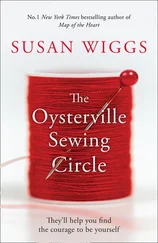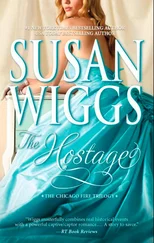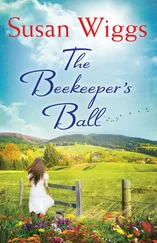Ranger tried another radio. The red trail of a smoke grenade bloomed, and then the wind swept it away. Ross spotted a patch of ground just as another hail of fire hit. Decking flew up, pieces glancing off his shoulder, his helmet. The ship whirled as though thrown into a giant blender, completely out of his control. There was no lift, nothing at all. The whistles and whines of the dying ship filled his head.
As the earth raced up to meet them, he found himself focusing on random sights on the ground—a tattered billboard for baby milk, a mangled soccer goal. The chopper roared as it hit, throwing up more steel decking. The jolt slammed through every bone of his body. His back teeth crunched together. A stray rotor slung free, mowing down everything in sight. Ross was in motion even before the thing settled. The reek of JP4 fuel choked him. He flung out a hand, grabbing Ranger’s shoulder, thanking God the other pilot was looking lively.
Nemo was struggling with his monkey strap, the rig used to hold him in the chopper during ops. The straps had tangled, and he was still tethered to a tie-down clamp attached to the ripped-up deck. Ranger went to help him, and the two of them dragged away the wounded guy in the litter, which, thankfully, had been hoisted into the cargo bay before the crash.
“Kennedy!” Ross dropped to his knees beside her. She lay eerily still, on her side. “Hey, Kennedy,” he said, “Move your ass. Move your fucking ass! We need to get out.”
Don’t be dead, he thought. Please don’t be dead. Damn, he hated this. Too many times, he’d turned a soldier over to find him—or her—too far gone, floating in root reflexes.
“Ken—”
“Fuck.” The FNG threw off his hand, hauling herself to her feet while uttering a stream of profanities. Then, just for a second, she focused on Ross. The soft-cheeked newness was already gone from her face, replaced by flinty-eyed determination. “Quit wasting time, Chief,” she said. “Let’s get the fuck out of here.”
The four of them crouched low against the curve of the chopper’s battered hull. Bullet holes riddled the starkly painted red cross and pockmarked the tail boom. The floor was covered with loose AK-47 rounds.
The Apache gunships had broken off and gone into hunter-killer mode, searching out the enemy on the ground, firing at the muzzle flashes on the mountainsides and producing a much-prayed-for lull. The other chopper had escaped and was no doubt sending out distress calls on the unit’s behalf. Pillars of black smoke from mortar rounds rose up everywhere.
With no means of evacuation, the crew had to take cover wherever they could. Heads down, in a hail of debris, they carried the litter toward the nearest house. Through a cloud of dust and smoke, Ross spotted an enemy soldier, hunched and watchful, armed with an AK47, approaching the same house from the opposite direction.
“I got this,” he signaled to Nemo, nudging him.
Unarmed against a hot weapon, Ross knew he had only seconds to act or he’d lose the element of surprise. That was where the army’s training kicked in. Approaching from behind, he stooped low, grabbed the guy by both ankles and yanked back, causing the gunman to fall flat on his face. Even as the air rushed from the surprised victim’s chest, Ross dispatched him quickly—eyes, neck, groin—in that order. The guy never knew what hit him. Within seconds, Ross had bound his wrists with zip ties, confiscated the weapon and dragged the enemy soldier into the house.
There, they found a host of beleaguered U.S. and Afghan soldiers. “Dustoff 91,” Ranger said by way of introduction. “And unfortunately, you’re going to have to wait for another ride.”
The captured soldier groaned and shuddered on the floor.
“Jesus, where’d you learn that move?” one of the U.S. soldiers demanded.
“Unarmed combat—a medevac’s specialty,” said Nemo, giving Ross a hand.
A babble of Pashto and English erupted. “We’re toast,” said a dazed and exhausted soldier. Like his comrades, he looked as if he hadn’t bathed in weeks, and he wore a dog’s flea collar around his middle; life at the outposts was crude as hell. The guy—still round-cheeked with youth, but with haunted eyes—related the action in dull shell-shocked tones. A part of this kid wasn’t even there anymore. When Ross met a soldier in such a state, he often found himself wondering if the missing part would ever be restored.
“Let’s have a look at the wounded,” Kennedy suggested. She seemed desperate to do something, anything. The soldier took her to a row of supine people on the floor—an Afghan teenager holding an iPhone and keening what sounded like a prayer, a guy moaning and clutching his shredded leg, several lying unconscious. Kennedy checked their vitals and looked around, lost. “I need something to write on.”
Ross grabbed a Sharpie marker from her kit. “Right there,” he said, indicating the teenager’s bare chest.
She hesitated, then started to write on the boy’s skin. More gunfire slapped the ground outside. After what seemed like an eternity, but was probably only twenty minutes, another Dustoff unit arrived, lowered a medic on a winch line and then beat away in search of a place to land. Inside the hut, the triage continued, with everyone aiding the medics.
Ross moved past a pair of soldiers who were obviously dead. He felt nothing. He wouldn’t let himself. The nightmares would come later.
“See if you can stop that bleeding,” the new medic said, indicating another victim. “Just hold something on it.”
Ross ripped off a sleeve to staunch a bleeding wound. Only after he’d pressed the fabric into an arm did he see that it was attached to an old guy who was being held by a boy singing softly into the man’s ear. It seemed to calm the wounded guy, Ross observed.
He needed to find the part of him that could still feel. He needed what he saw in the way the boy’s hand caressed the old man’s cheek. Family. It gave life its meaning. When everything was stripped away, family was the only thing that mattered, the only thing that kept a person tethered to the ground. Other than his grandfather, Ross was lacking in that department. He hated feeling so hollow and numb.
Fire from the insurgents subsided. Two more chopper crews arrived with litters, racing across open ground to reach the others. Everyone burst into action, taking advantage of the lull. The wounded were loaded on litters, pulled along on ponchos, carried in straining arms. Those who were ambulatory piled in, creating chaos. The first bird took off, chugging with its burden, then swung like a carnival ride.
Ross was in the second one, the last to board, grasping a cleat for a handhold. The firing started up again, pinging off the skids. The flight passed in a blur of noise and dust and smoke, but finally—thank God, finally—he could see an ops guy mouth the magic words everyone had been waiting—hoping, praying—for: Dustoff is inbound.
They reached the LZ with the last of their fuel, and the ground personnel took over. Ross found somebody in medical to give him some betadine and a couple of bandages. Then he walked out into the compound, the sun beating down on his bare arm where he’d ripped his sleeve off. He was light-headed with the feeling that he’d been to hell and back.
It was barely noon.
Renowned for its swiftness and efficiency, his Dustoff unit had saved a lot of lives. Twenty-five minutes from battlefield to trauma ward was the norm. It was something he’d look back at with pride, but it was time to move on. He was so damn ready to move on.
Guys were milling around the mess tent. Two more air crews were preparing to head out again.
“Hey, Leroy, Christmas came early for you this year,” said Nemo, wolfing down a folded-over piece of pizza from the Pizza Hut tent. “I hear your discharge orders came through.”
Читать дальше












